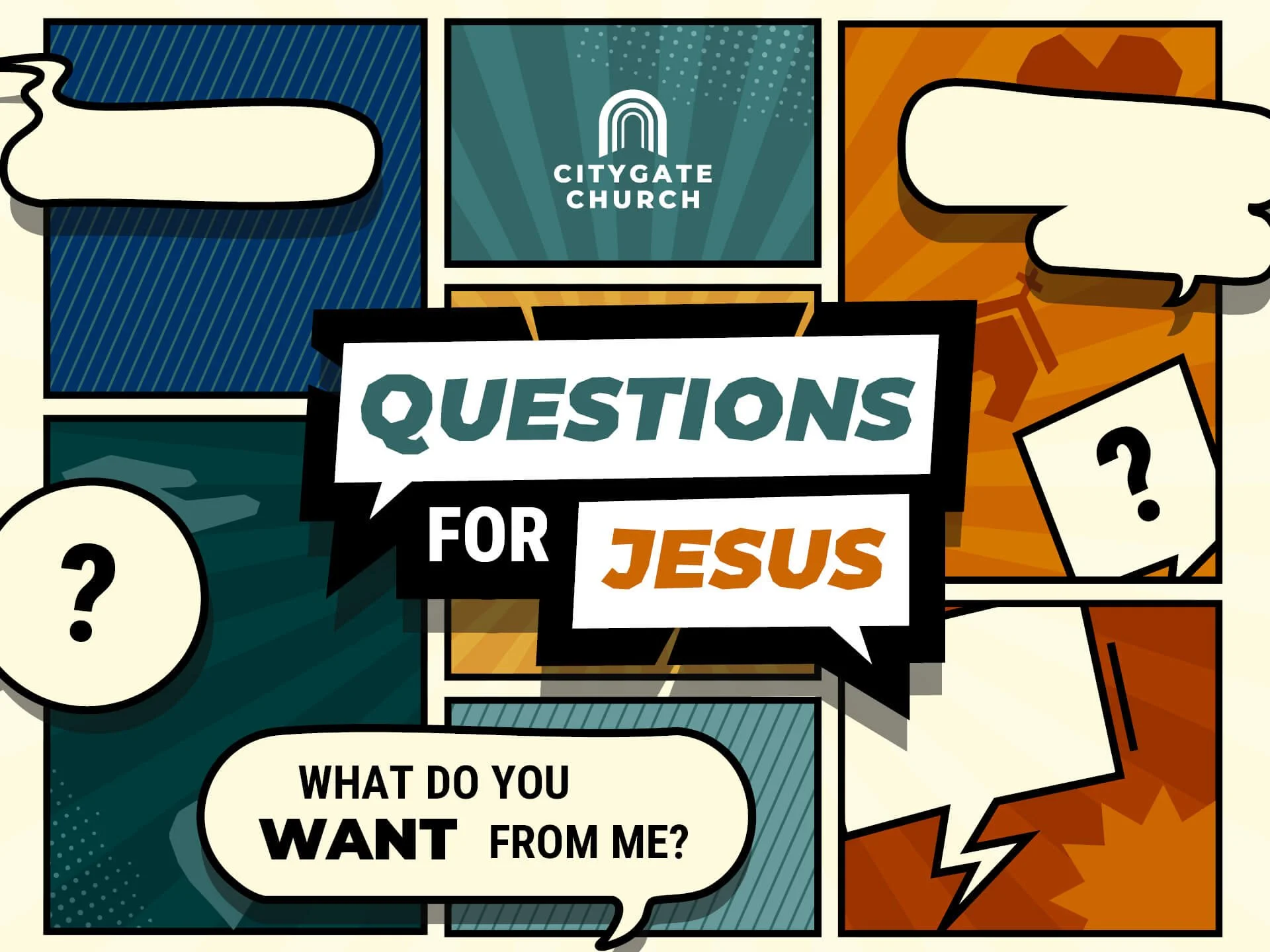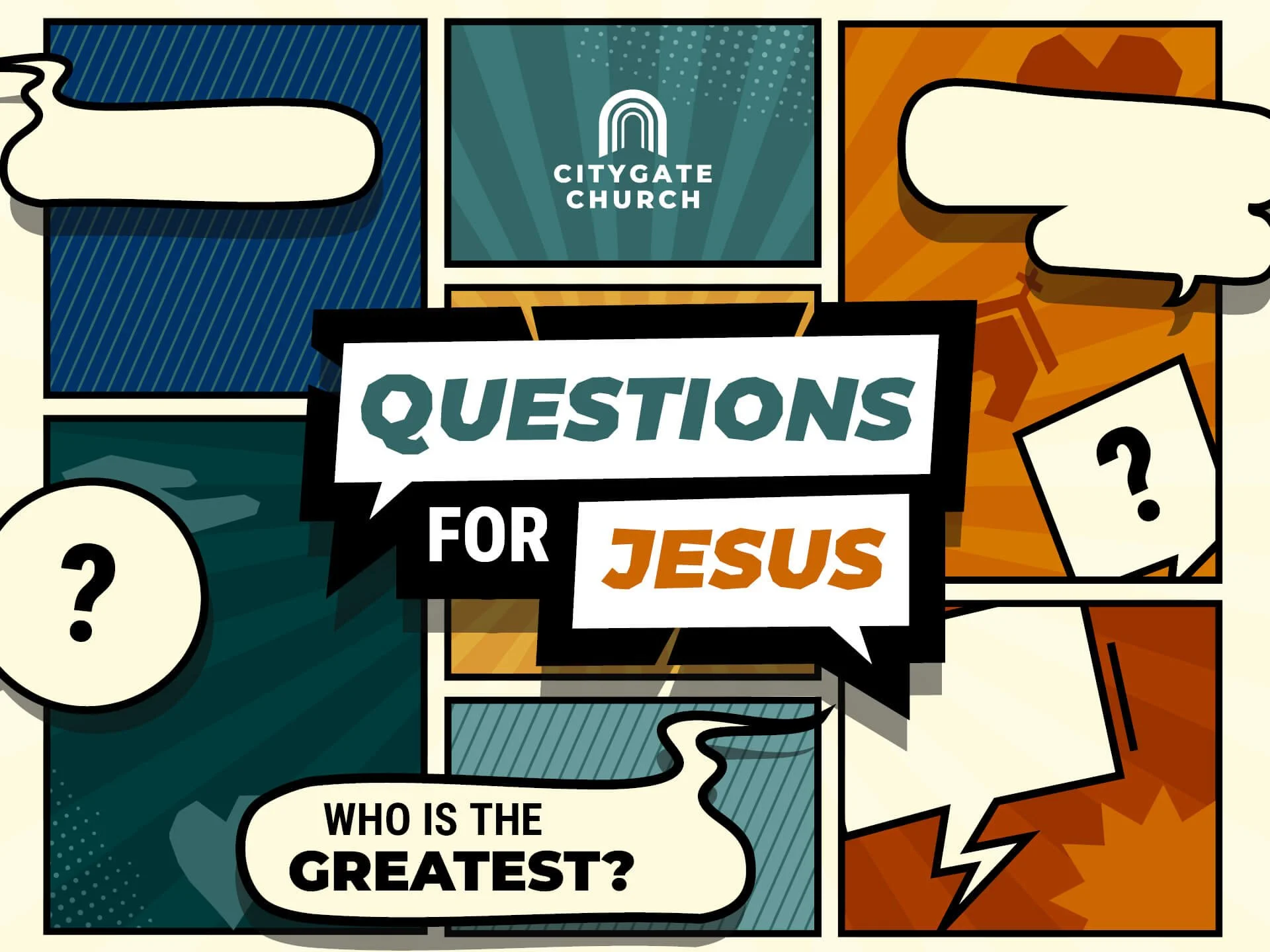Questions for Jesus | Can You Really Save Me?
About this series:
In each of the gospels we find Jesus asking questions of his disciples, the crowds and his opponents. And we also find Jesus being asked questions - by his disciples, the crowds and his opponents. Here, we will take 10 questions people asked of Jesus, the first from Luke’s gospel to set up the series and then the rest from Matthew’s gospel.
As well as working through the specific passages, we will aim to encourage people to consider what questions they would like to ask Jesus. The hope is that by looking at Matthew’s gospel in this way, we will see more clearly who Jesus is, be inspired to follow him and learn to be honest about our own questions as we grow to become more like him.
About this talk:
It appears that John the Baptist had been imprisoned by Herod quite early in Jesus’ ministry (Matthew 4:12; Mark 1:14; Luke 3:20). Perhaps some of John’s disciples have reported to him what Jesus has been doing and it would not be surprising if John’s situation has led him to question whether Jesus truly was “the Lamb of God, who takes away the sin of the world...God’s Chosen One” as he had previously proclaimed (John 1:29,34).
John must surely have anticipated, in line with Jewish thinking, that the coming of God’s Chosen One would mean the otherthrow of Israel’s enemies and the restoration of Israel’s fortunes. And yet, life continues much as it did and John is languishing in prison. So he sent his disciples back to Jesus with a question that had been plaguing him: “Are you the one who is to come, or should we expect someone else?” The answer Jesus gives is not a rebuke to John (in fact he is very affirming of John, vs 7-11), nor a theological explanation for why things have not yet turned out as
John anticipated. Instead Jesus sent them back to John with a reminder of some of the physical evidence that the kingdom of God had come near: “Go back and report to John what you hear and see: the blind receive sight, the lame walk, those who have leprosy are cleansed, the deaf hear, the dead are raised, and the good news is proclaimed to the poor.” These are signs that the kingdom has come and that it is coming through the anointed servant of the Lord (see Luke 4:18-21; cf. Acts 10:37-38). But there is another possibility - that John was sending his own disciples to Jesus with the question because they were the ones who needed convincing about Jesus. Clues as to why this may be the case include:
John is said to already know for himself the deeds of the Messiah: “When John, who was in prison, heard about the deeds of the Messiah.”
It is possible that John’s disciples had not yet fully transferred their loyalty to Jesus (see John 3:23-30) and John, knowing he may be executed soon, wanted to ensure they finally became followers of Jesus.
Either way, their question - “Are you the one who is to come, or should we expect someone else?” is perhaps understandable given the now and not yet nature of the kingdom of God. God’s Son, the anointed servant has come and yet the wicked are not judged; evil prospers as it did before. It is a confusing situation, one anticipated by Jesus in his parable of the weeds, Matthew 13:24-30. He will soon give two very short parables to explain that the kingdom of God is growing (Matthew 13:31-33), but in this parable he explains that “until the harvest” (v 30) the enemy is active and weeds are growing among the wheat - “Let both grow together until the harvest.”
Here is a twist that Jewish minds never expected: the kingdom has come near, as Jesus said, but it comes quietly; it grows slowly; and it grows alongside the devil’s activity, alongside sin, evil and wickedness. Jesus teaches in this set of parables that our experience will be of his kingdom being both really here and not fully here; it’s now and not yet; we have the foretaste, but not yet the full meal. God’s enemies have been defeated, he just hasn’t blown the final whistle yet.
It’s as if Jesus is saying to John - or to John’s disciples: “Don’t mistake the delay in judgement on evil as the absence of the kingdom; don’t mistake the presence of evil as the absence of God. The kingdom has come, it is breaking in, it is advancing, growing; God is ruling, his reign is growing; the blessings of the age to come are being tasted even now. And don’t mistake the current delay in judgement on wickedness as the absence of future judgement.” Jesus is “the one who is to come”; and the one who is coming again.
But finally the question becomes “Can you really save me? Are you the promised Saviour who can rescue me?” And the answer to that question depends, just as it did for John and / or his disciples, on the evidence Jesus has provided for being our Saviour - the evidence of his birth, life, death, resurrection, miracles, fulfilment of Old Testament prophecy, and so on.
Audio only
Discussion Questions
As usual - here's the discussion suggestion. Southbourne - I know this is out of sync for you - the discussion for the Divorce topic should have hit your inbox last week.
1. Welcome & Icebreaker
Share, briefly, a story of a narrow / lucky escape? It can be from danger or even having to play an embarrassing part in a play!
After the icebreaker, split the life group into two groups.
Group 1
To the first group, give the following verses and ask them to make a quick list of what we are saved from.
Romans 3:23-24
Romans 5:8-9
Isaiah 61:1-3
Answers
Romans 3:23-24 - sin and separation
Romans 5:8-9 - wrath and judgement
Isaiah 61:1-3 - shame, guilt and bondage
Group 2
To the other half of the group, given them the following verses and ask them to make a quick list of what we are saved for.
Romans 5:11
John 1:12
Eph 2:10 and 15b
Titus 3:4-7
Answers
Romans 5:11 - reconciliation
John 1:12 - adoption and new identity
Eph 2:10 and 15b - purpose and mission of reconciliation
Titus 3:4-7 - eternal life and hope
Once they've discussed amongst themselves (shouldn't need more than 5 mins) then bring them back into a big group and get them to share.
In the big group then use the following questions to open some conversations - this should be the main chunk of the evening conversation.
Connecting the Two Halves
Why is it important not to focus only on what we've been saved from?
What might be missing in our Christian life if we stop there?
Why is it also dangerous to focus only on what we're saved for, without fully grasping what we're saved from?
How does that impact our appreciation of grace?
How can this balanced view of salvation shape the way we share our faith with others? What might be the benefits of focusing on the 'for' first with friends, colleagues or family members?
If we are saved for the purpose of reconciliation - reconciling ourselves to God and to others, and helping them do the same, what is one step you can take to walk in that purpose this next week?
If you have time, maybe finish by allowing the song 'Thank You Jesus for the Blood' by Charity Gayle to stir worship in response to the reminder of what we have been saved from and for.












